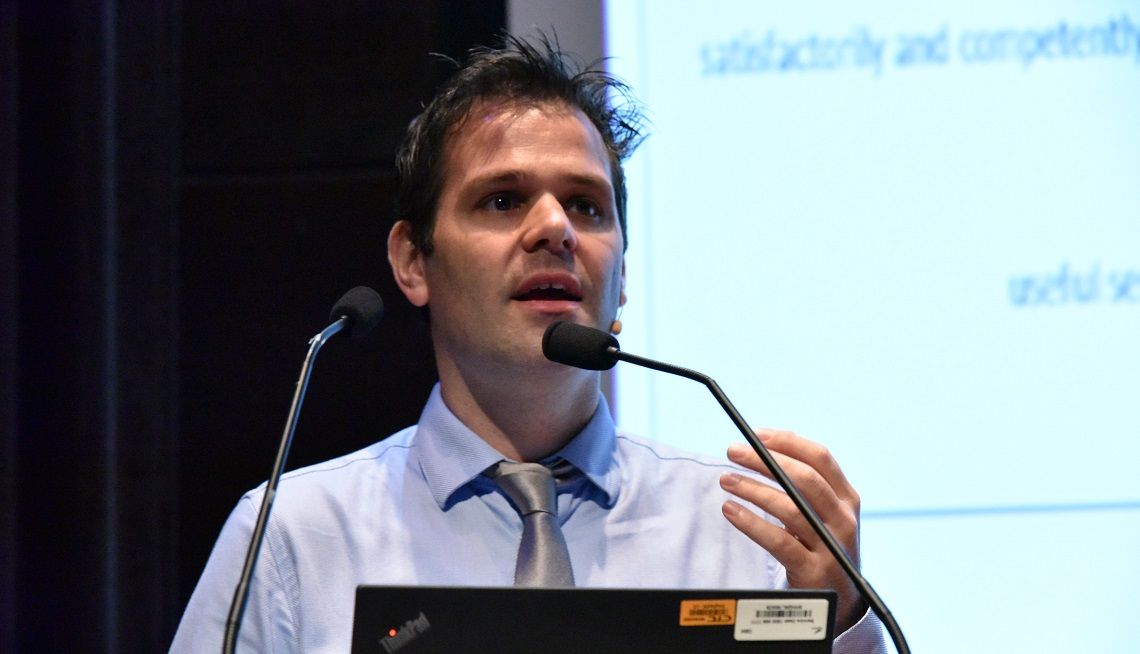Exclusive Interview: KK Women’s and Children’s Hospital, Singapore
By Nurfilzah Rohaidi
Dr Dirk de Korne, Deputy Director of Medical Innovation and Care Transformation, on his vision for digital transformation and reinvention.

What projects are you most excited about this year?
We are currently running many exciting projects related to digital transformation. Some of them are focused on digital tracking and tracing of our operations. These projects include the use of smart sensors in the hospital to improve quality and efficiency. They give us real-time information about process times and performance.
Other projects include video consultations, which allow the patient to remotely consult their healthcare professionals from the comforts of home. We have also developed chatbots with locally validated medical information, which are available to patients 24/7. And this year, we hope to set important next steps in our computer vision journey and finalise a number of proof-of-concepts involving artificial intelligence, blockchain, cloud, and data.
The future of healthcare, as with many other industries, lies in digital transformation. Without reinventing ourselves, we will face increasing constraints such as manpower, in taking care of the rise in chronic conditions and meeting the aging population’s healthcare needs.
How are you driving innovation in the hospital to improve safety and efficiency?
Innovation does not exist in a box, and every individual in the hospital is a potential innovator. We believe that every one of our staff can improve our day-to-day operations and ways of working - and that aspiration is palpable across our teams and departments.
Our Medical Innovation and Care Transformation team is on hand to help make these aspirations a reality. The team provides a bridge to equip our healthcare staff with the necessary skills and tools.
Innovation could take the form of collaboration and co-creation with companies, including multinational corporations and start-ups. We also have ongoing working relationships and partnerships with several universities and schools, and look forward to more collaborations in the future.
As an Academic Medical Centre, we not only focus on delivering the best medical care possible, but also look into care transformation using the latest medical innovations and technology. For example, we partnered with Amazon Web Services in a hackathon. We invited local students to use AWS cloud tools to develop solutions that complement and strengthen our usual approach and processes to address key healthcare issues.
What technologies and tools most interest you currently?
Innovation is much more than just technologies and tools, but when it comes to the current fields of interest, I think they could be summarised as ‘ABCD’. In healthcare, we traditionally relate ‘ABCD’ to airway, breathing, circulation and disability. Recently, the same acronym has been used to denote artificial intelligence, blockchain, cloud, and data.
Will these be the vital signs of our future healthcare? Or is it all just buzz and hype? We probably do not know its full content or potential as yet. But all four areas are definitely of great current interest - particularly visual analytics, where optical sensors or cameras help to drive excellence and efficiency.
Real-time notification using technology will make healthcare more effective as it reduces the need for registration and time-stamping work, while enabling behavioural change. Currently, in many daily practices, we are still doing manual tasks such as collecting data and tabulating reports. Real-time notification could change that almost dramatically.
It is important to note that innovation will only be of value if it translates into improved patient care, or if it increases joy in the workplace and boosts employee satisfaction. We will simply not be able to deliver the healthcare of tomorrow if we continue using yesterday’s paradigms.